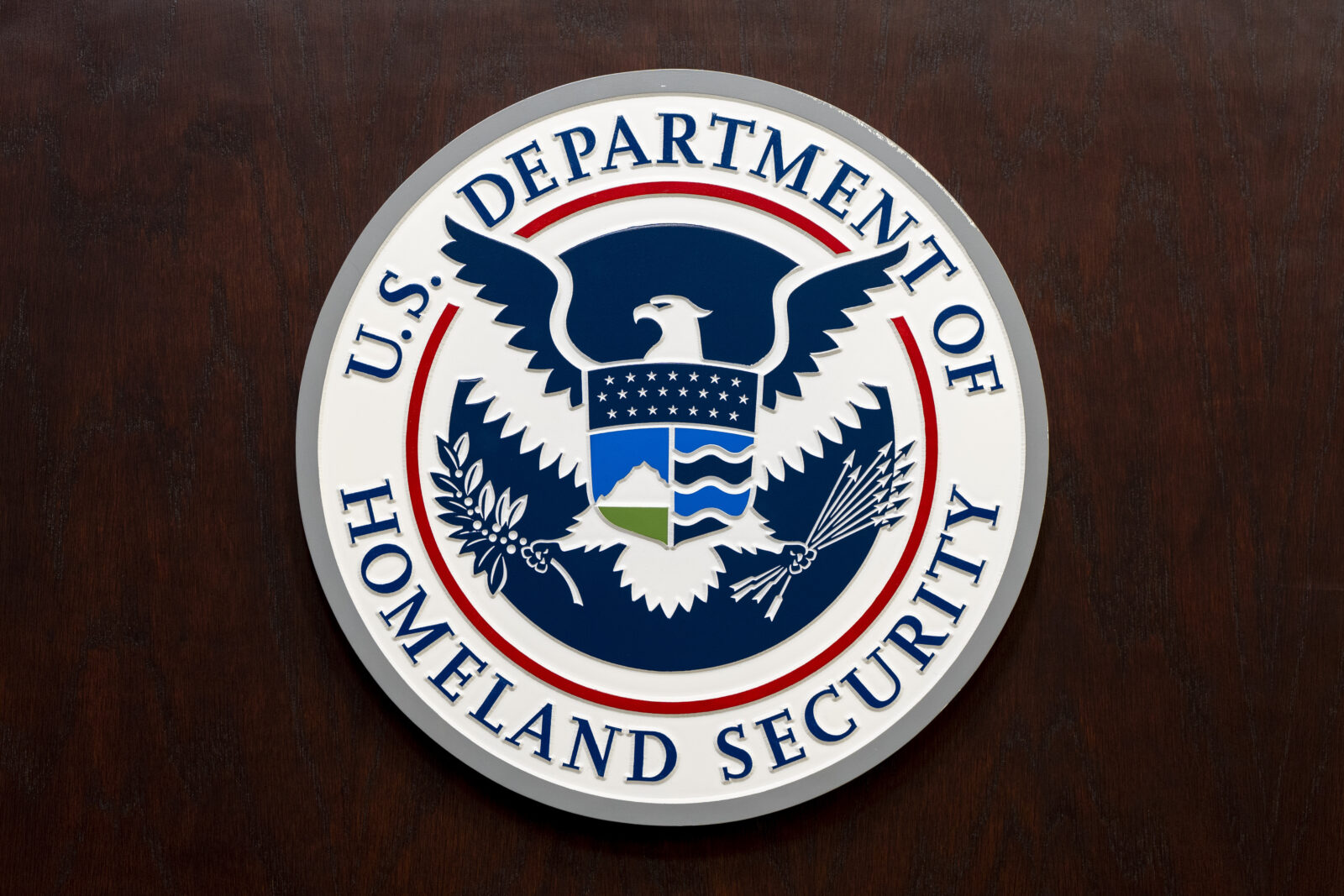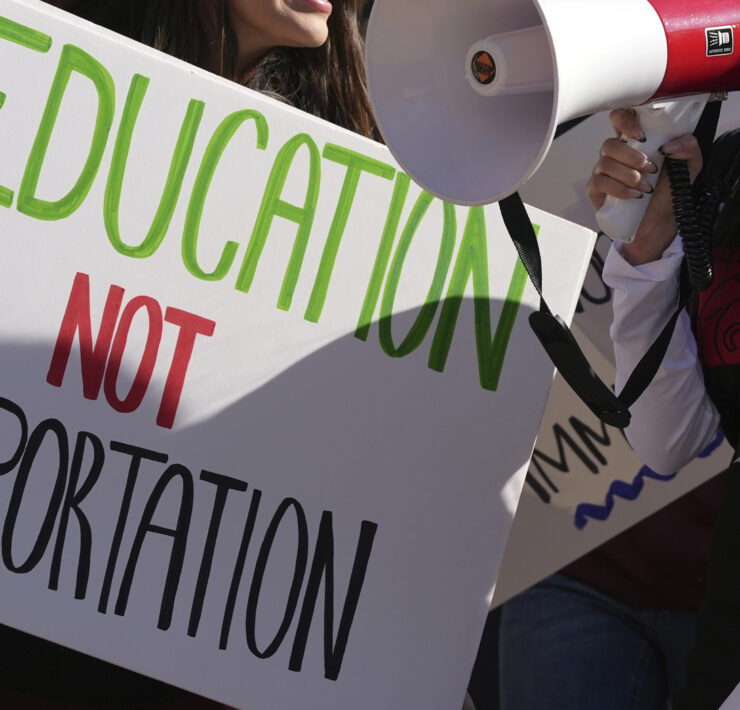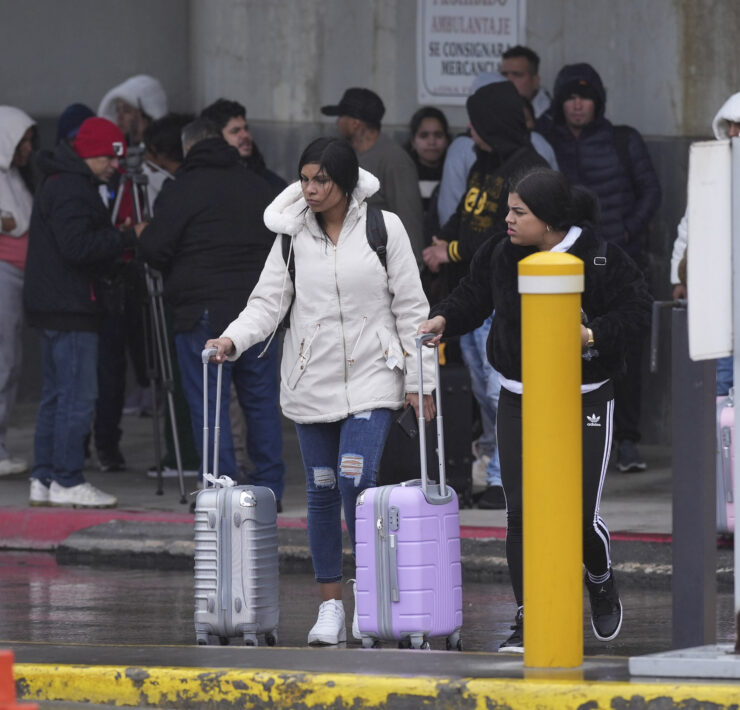Judge allows requirement that everyone in the US illegally must register to move forward

WASHINGTON (AP) — A federal judge on Thursday allowed the Trump administration to move forward with a requirement that everyone in the U.S. illegally must register with the federal government and carry documentation, in a move that could have far-reaching repercussions for immigrants across the country.
Judge Trevor Neil McFadden — a Trump appointee — sided with the administration, which had argued that officials were simply enforcing a requirement that already existed for everyone who is in the country but isn’t an American citizen. McFadden’s ruling didn’t go into the substance of those arguments but rested largely on the technical issue of whether the groups pushing to stop the requirement had standing to pursue their claims. He ruled they didn’t.
The requirement goes into effect Friday.
Immediately after the ruling, Department of Homeland Security officials emphasized in a news release that the deadline to register for those who’ve already been in the country for 30 days or more is Friday and that going forward, the registration requirement would be enforced to the fullest.
“President Trump and I have a clear message for those in our country illegally: leave now. If you leave now, you may have the opportunity to return and enjoy our freedom and live the American dream,” Secretary Kristi Noem said in the statement. “The Trump administration will enforce all our immigration laws — we will not pick and choose which laws we will enforce. We must know who is in our country for the safety and security of our homeland and all Americans.”
While questions remain about how the registration requirement will function, its impact is potentially far-reaching. The Trump administration — which has worked to make good on campaign promises of mass deportations — has said between 2.2 million and 3.2 million people could be affected.
One of the groups that sued, the National Immigration Law Center, called the Thursday ruling “disappointing” in a statement.
“This disappointing ruling unfortunately means that, for now, Trump’s scheme to force people into an impossible choice moves forward. As we weigh next steps in our case, we urge affected community members to consult with an immigration attorney to better understand the consequences of registering or not,” said Nicholas Espíritu, deputy legal director at National Immigration Law Center.
Homeland Security officials announced Feb. 25 that it was mandating that all people in the United States illegally register with the federal government, and said those who didn’t self-report could face fines or prosecution. Failure to register is considered a crime, and people will be required to carry registration documents with them or risk prison time and fines.
Registration will be mandatory for everyone 14 and older without legal status. People registering have to provide their fingerprints and address, and parents and guardians of anyone under age 14 must ensure they registered.
The registration process also applies to Canadians who are in the U.S. for more than 30 days, including so-called snowbirds who spend winter months in places like Florida.
Federal immigration law has long required that people who aren’t American citizens and live in the U.S., including those here illegally, register with the government. Those laws can be traced back to the Alien Registration Act of 1940, which came amid growing fears of immigrants and political subversives in the early days of World War II. The current requirements stem from the Immigration and Nationality Act of 1952.
But the requirement that people illegally in the U.S. register has been enforced only in rare circumstances. In fact, advocates opposing the government say it hasn’t been universally used since it was first introduced in the mid-1940s.
It was used in a limited way after Sept. 11, 2001, when the National Security Entry-Exit Registration System required that noncitizen males 16 and older from 25 countries — all but one of them majority Arab or Muslim — register with the U.S. government. The program led to no terrorism convictions but pulled more than 13,000 people into deportation proceedings. It was suspended in 2011 and dissolved in 2016.
The Trump administration has argued that the registration requirement has always existed and that officials are simply enforcing it for everyone.
The groups that sued say the government should have gone through the more lengthy public notification process before bringing about the change, and that it’s enforcing this simply to facilitate President Donald Trump’s aim of carrying out mass deportations.
They argue that the registry puts people who work, contribute to the economy and have deep family ties in America into a deep bind: Do they come forward, register and essentially give up their location to a government intent on carrying out mass deportations, or do they stay in the shadows and risk being charged with the crime of not registering?
The government has already asked people subject to the registration requirement to create an account on the U.S. Citizenship and Immigration Services website.



















